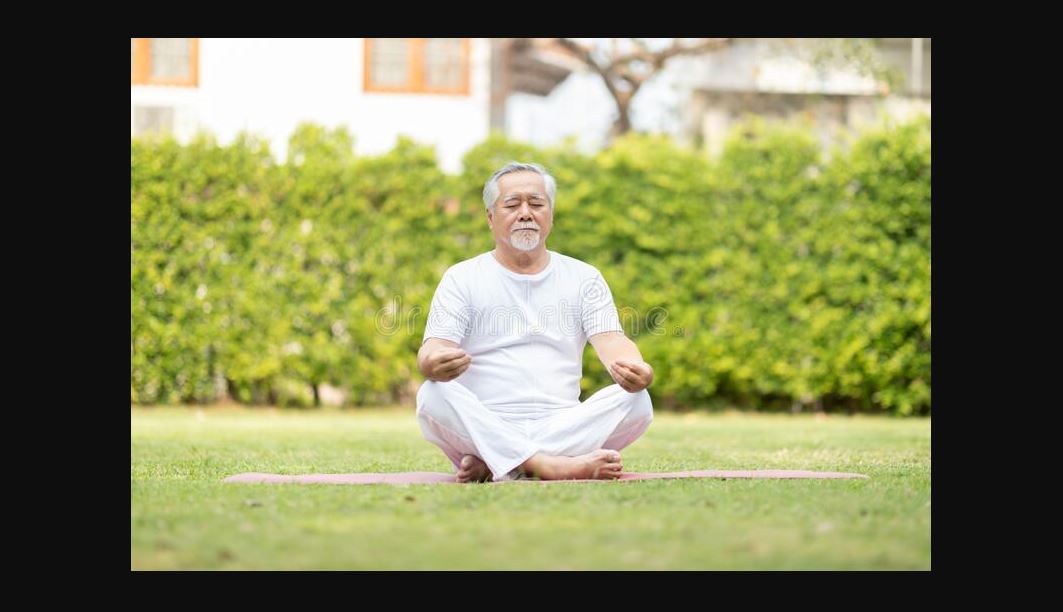Spiritual Practices For Self-Discovery And Personal Growth
Spirituality is often associated with a sense of connection to something greater than oneself, but it can also be a powerful tool for self-discovery and personal growth. In this article, we will explore several spiritual practices that can support self-discovery and personal growth, including meditation, journaling, mindfulness, breathwork, movement practices, and gratitude.
Author:Suleman ShahReviewer:Han JuApr 06, 202323 Shares643 Views

Spiritualityis often associated with a sense of connection to something greater than oneself, but it can also be a powerful tool for self-discovery and personal growth.
By exploring our inner world and developing a deeper understanding of ourselves, we can cultivate greater self-awareness, compassion, and purpose in life.
In this article, we will explore several spiritual practicesthat can support self-discovery and personal growth, including meditation, journaling, mindfulness, breathwork, movement practices, and gratitude.
Spiritual Practices For Inner Peace And Mindfulness
In today's fast-paced and hectic world, it's easy to feel overwhelmed and disconnected from ourselves. Spiritual practices offer a way to reconnect with our inner selves and find a sense of peace and mindfulness.
Whether you're seeking to reduce stress, increase self-awareness, or deepen your spiritual connection, there are many different practices to explore. In this article, we'll take a look at some powerful spiritual practices that can help you cultivate a greater sense of inner peace and mindfulness in your daily life.
Meditation
Meditation is a practice that has been around for thousands of years and has been used by people of all backgrounds and cultures. It is a technique that involves training the mind to focus and achieve a state of deep relaxation and inner peace.
Through regular practice, meditation has been shown to have numerous physical, mental, and emotional benefits, including reducing stress and anxiety, improving focus and concentration, and promoting feelings of well-being and happiness.
There are many different types of meditation, but most involve sitting or lying down in a comfortable position and focusing the attention on a specific object, such as the breath, a mantra, or a visualization.
As thoughts and distractions arise, the meditator gently acknowledges them and brings their focus back to the chosen object. Over time, this practice can help to quiet the mind and cultivate a greater sense of inner calm and clarity.
One of the key benefits of meditation is its ability to reduce stress and anxiety. When we are stressed, our bodies go into a state of "fight or flight," which can lead to increased heart rate, blood pressure, and muscle tension.
However, by practicing meditation, we can activate the body's relaxation response, which can counteract the effects of stress and promote a sense of calm and relaxation. This can help to reduce the symptoms of stress-related conditions such as anxiety, depression, and insomnia.
There are many different types of meditation, and each person may find that a particular technique or style resonates with them more than others. Some popular forms of meditation include mindfulness meditation, mantra meditation, and loving-kindness meditation.
Many people find it helpful to practice meditation with the guidance of a teacher or through a structured program, such as a meditation class or app.
Meditation is a powerful tool for promoting physical, mental, and emotional well-being. By developing greater self-awareness and inner peace through regular practice, we can experience greater joy, clarity, and purpose in life.
Whether you are a beginner or an experienced meditator, incorporating meditation into your daily routine can have profound benefits for your mind, body, and spirit.
Journaling
Journaling is a practice that involves writing down one's thoughts, feelings, and experiences in a journal or notebook. It is a powerful tool for self-reflection and self-discovery, and has been used by people of all ages and backgrounds as a means of exploring their inner world and processing their emotions.
One of the key benefits of journaling is its ability to help us gain clarity and insight into our thoughts and feelings. By putting our thoughts down on paper, we can more easily identify patterns, beliefs, and behaviors that may be holding us back or causing us distress. This can help us to gain a greater understanding of ourselves and our experiences, and to make more conscious choices about how we want to live our lives.
One popular method of journaling is called "morning pages," which involves writing three pages of longhand writing every morning, before doing anything else. This practice is designed to help clear the mind and release any lingering worries or concerns from the previous day.
Another popular method of journaling is called "gratitude journaling," which involves writing down three things that you are grateful for each day. This practice has been shown to promote feelings of happiness and contentment and can help to shift our focus away from negative thoughts and emotions.
Journaling is a powerful tool for self-reflection, self-discovery, and personal growth. By taking the time to write down our thoughts and feelings, we can gain a greater understanding of ourselves and our experiences and can develop a greater sense of clarity, insight, and self-awareness.
Whether you are a seasoned journaler or a beginner, incorporating journaling into your daily routine can have profound benefits for your mind, body, and spirit.
Mindfulness
Mindfulness is the practice of being fully present and engaged in the present moment, without judgment or distraction. It is a form of meditation that has been shown to have a wide range of benefits for both mental and physical health.
One of the key benefits of mindfulness is its ability to reduce stress and anxiety. By focusing our attention on the present moment, we can calm the racing thoughts and worries that can contribute to feelings of stress and anxiety.
Additionally, mindfulness can help us to develop a greater sense of self-awareness, which can help us to identify and manage stress triggers more effectively.
Mindfulness has also been shown to have a positive impact on mood and overall well-being. By cultivating a non-judgmental attitude towards our thoughts and emotions, we can develop a greater sense of acceptance and compassion towards ourselves and others. This can lead to increased feelings of happiness, contentment, and overall life satisfaction.
There are many different ways to practice mindfulness, and each person may find a different method that works best for them. One popular method is to practice mindful breathing, which involves focusing on the sensations of the breath as it enters and leaves the body.
Other methods include body scanning, where one focuses on the physical sensations in different parts of the body, and mindful movements, such as yoga or tai chi.
It is important to note that mindfulness is not a quick fix or a cure-all for all of life's problems. It is a practice that requires patience, persistence, and a willingness to be present with whatever arises in the present moment, whether it is pleasant or unpleasant.
However, with regular practice, mindfulness can have a profound impact on our mental and physical health, helping us to live more fully and joyfully in the present moment.
Breathwork
Breathwork is a practice that involves intentionally controlling the breath in order to promote physical, emotional, and spiritual well-being. It is a powerful tool for stress reduction, emotional regulation, and personal growth.
The practice of breathwork involves a variety of techniques, ranging from simple deep breathing exercises to more complex patterns of inhalation and exhalation. Some breathwork techniques involve holding the breath for a period of time, while others involve rapid, repetitive breathing patterns.
One of the key benefits of breathwork is its ability to promote relaxation and reduce stress. By slowing down and deepening the breath, we can activate the parasympathetic nervous system, which is responsible for promoting feelings of relaxation and calm. This can help to reduce feelings of anxiety and tension and can promote a greater sense of overall well-being.
There are many different types of breathwork, each with its own unique benefits and techniques. Some popular forms of breathwork include holotropic breathwork, which involves deep, rhythmic breathing to induce altered states of consciousness, and pranayama, which is a traditional yogic breathing practice that involves a variety of different techniques for promoting physical, emotional, and spiritual well-being.
Movement Practices
Movement practices are physical activities that promote physical, emotional, and spiritual well-being. These practices can take many forms, ranging from yoga and tai chi to dance and martial arts.
One of the key benefits of movement practices is their ability to promote physical health and fitness. By engaging in regular physical activity, we can improve our cardiovascular health, build strength and endurance, and maintain a healthy weight. Movement practices also promote flexibility and mobility, which can help to prevent injuries and reduce the risk of chronic pain.
One popular movement practice is yoga, which combines physical postures with breathing and meditation techniques. Yoga has been shown to have a wide range of benefits for both physical and mental health, including reducing stress and anxiety, improving flexibility and balance, and promoting a sense of overall well-being.
Dance is another movement practice that can have powerful physical, emotional, and spiritual benefits. Dancing can be a fun and creative way to express oneself, while also improving cardiovascular health and promoting a sense of joy and connection.
Movement practices are a powerful tool for promoting physical, emotional, and spiritual well-being. Whether you prefer yoga, tai chi, dance, or martial arts, incorporating regular movement into your daily routine can have profound benefits for your mind, body, and spirit.
Gratitude
Gratitude is the practice of being thankful and appreciative for the blessings and good things in our lives, both big and small. It is a powerful tool for promoting emotional well-being and improving our outlook on life.
Gratitude can also help us to cultivate deeper relationships with others. When we express gratitude for the people in our lives, we can strengthen our bonds with them and create a greater sense of connection and community.
Another powerful way to practice gratitude is through acts of kindness and generosity. When we do something nice for someone else, we not only help to brighten their day but also cultivate feelings of gratitude and appreciation within ourselves.
Gratitude is a powerful tool for promoting emotional well-being and improving our outlook on life. Whether you practice gratitude through daily affirmations, gratitude journals, acts of kindness, or other means, incorporating gratitude into your daily routine can have profound benefits for your mind, body, and spirit.
People Also Ask
What Is The Purpose Of Spiritual Practices?
Spiritual practices are designed to cultivate a deeper sense of connection to oneself, others, and the universe. They can promote emotional well-being, reduce stress and anxiety, and promote a greater sense of overall well-being.
What Are Some Common Spiritual Practices?
Some common spiritual practices include meditation, journaling, mindfulness, breathwork, movement practices such as yoga or tai chi, and gratitude.
How Can Spiritual Practices Help With Personal Growth?
Spiritual practices can help to promote self-awareness and self-reflection, which can lead to personal growth and transformation. They can help us to identify and overcome limiting beliefs and patterns, and cultivate a greater sense of purpose and meaning in life.
Conclusion
Spirituality can be a powerful tool for self-discovery and personal growth. It is important to remember that spiritual growth is a journey, not a destination. It requires patience, dedication, and self-compassion, and it is something that unfolds gradually over time. Take the time to explore these spiritual practices and discover what works best for you.

Suleman Shah
Author
Suleman Shah is a researcher and freelance writer. As a researcher, he has worked with MNS University of Agriculture, Multan (Pakistan) and Texas A & M University (USA). He regularly writes science articles and blogs for science news website immersse.com and open access publishers OA Publishing London and Scientific Times. He loves to keep himself updated on scientific developments and convert these developments into everyday language to update the readers about the developments in the scientific era. His primary research focus is Plant sciences, and he contributed to this field by publishing his research in scientific journals and presenting his work at many Conferences.
Shah graduated from the University of Agriculture Faisalabad (Pakistan) and started his professional carrier with Jaffer Agro Services and later with the Agriculture Department of the Government of Pakistan. His research interest compelled and attracted him to proceed with his carrier in Plant sciences research. So, he started his Ph.D. in Soil Science at MNS University of Agriculture Multan (Pakistan). Later, he started working as a visiting scholar with Texas A&M University (USA).
Shah’s experience with big Open Excess publishers like Springers, Frontiers, MDPI, etc., testified to his belief in Open Access as a barrier-removing mechanism between researchers and the readers of their research. Shah believes that Open Access is revolutionizing the publication process and benefitting research in all fields.

Han Ju
Reviewer
Hello! I'm Han Ju, the heart behind World Wide Journals. My life is a unique tapestry woven from the threads of news, spirituality, and science, enriched by melodies from my guitar. Raised amidst tales of the ancient and the arcane, I developed a keen eye for the stories that truly matter. Through my work, I seek to bridge the seen with the unseen, marrying the rigor of science with the depth of spirituality.
Each article at World Wide Journals is a piece of this ongoing quest, blending analysis with personal reflection. Whether exploring quantum frontiers or strumming chords under the stars, my aim is to inspire and provoke thought, inviting you into a world where every discovery is a note in the grand symphony of existence.
Welcome aboard this journey of insight and exploration, where curiosity leads and music guides.
Latest Articles
Popular Articles

